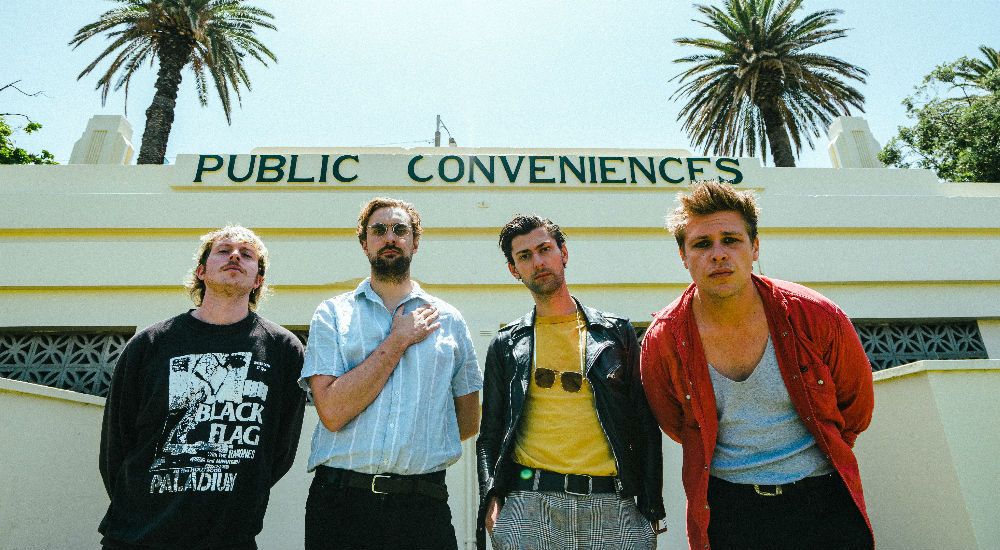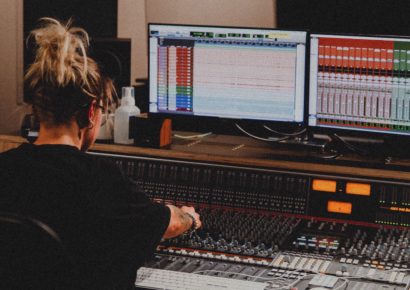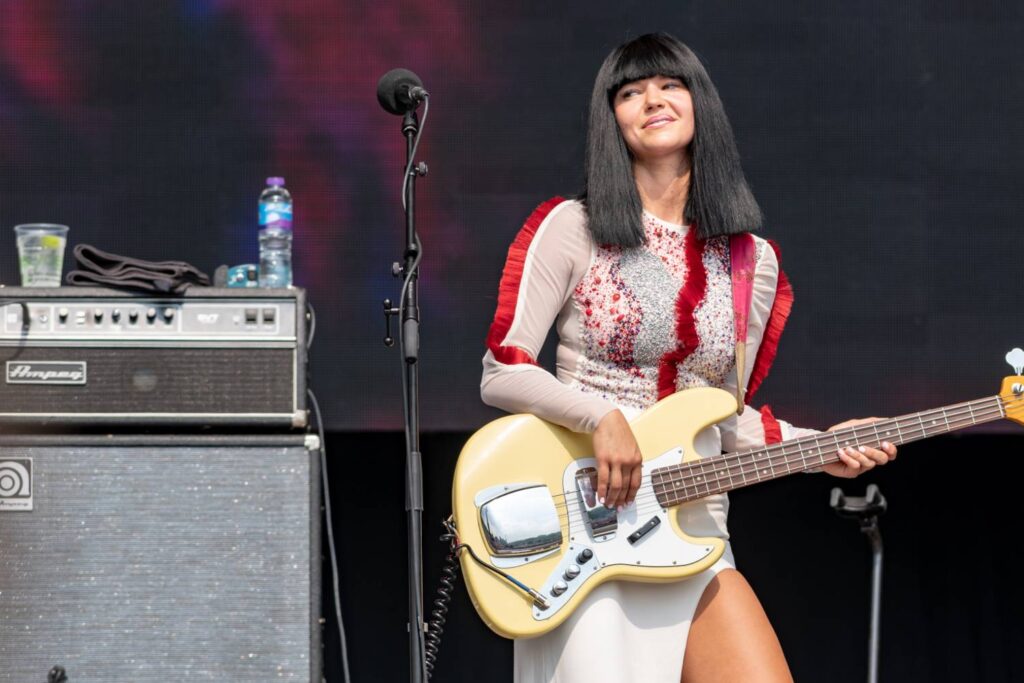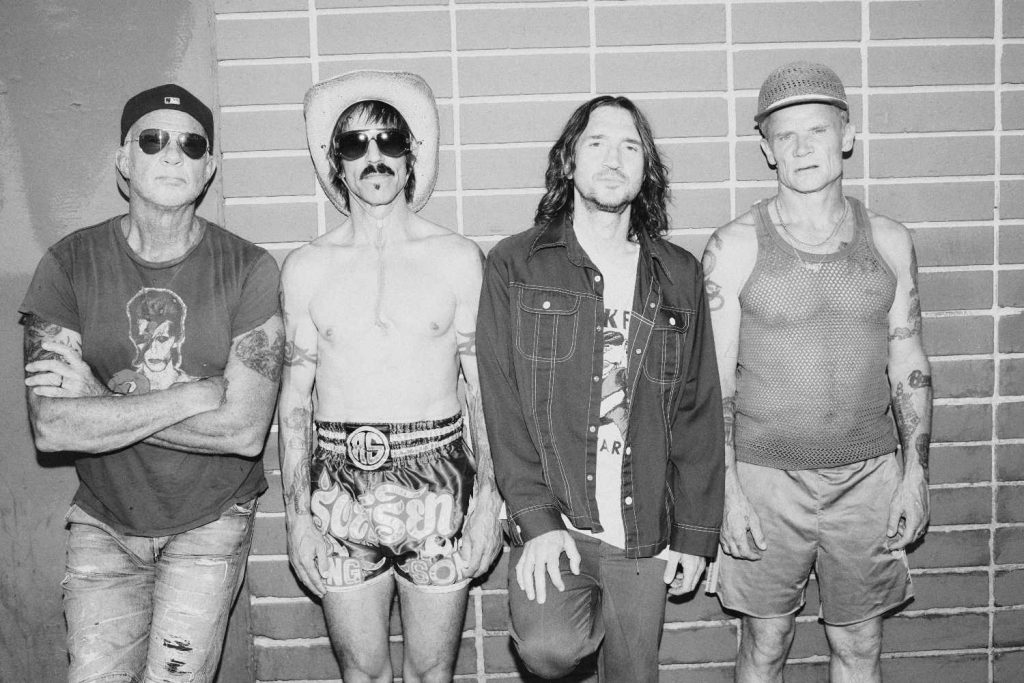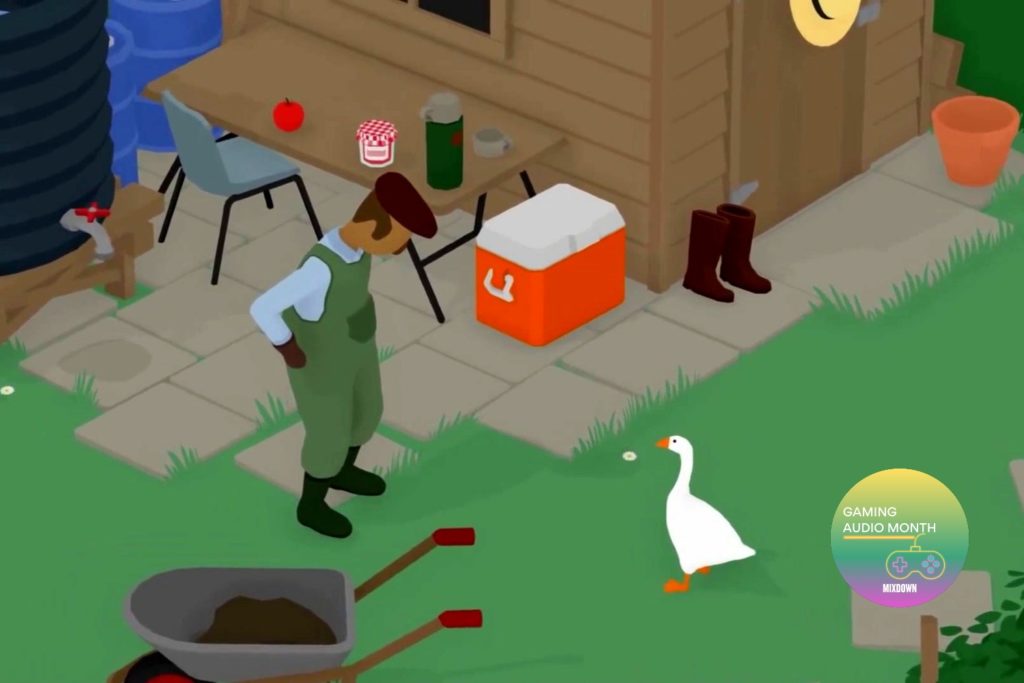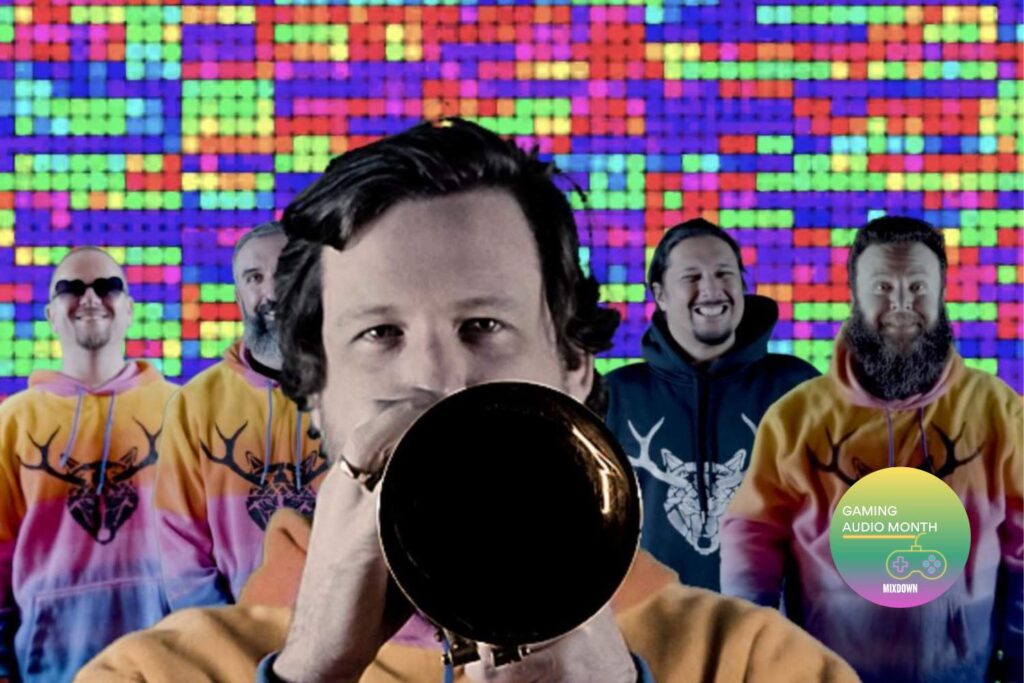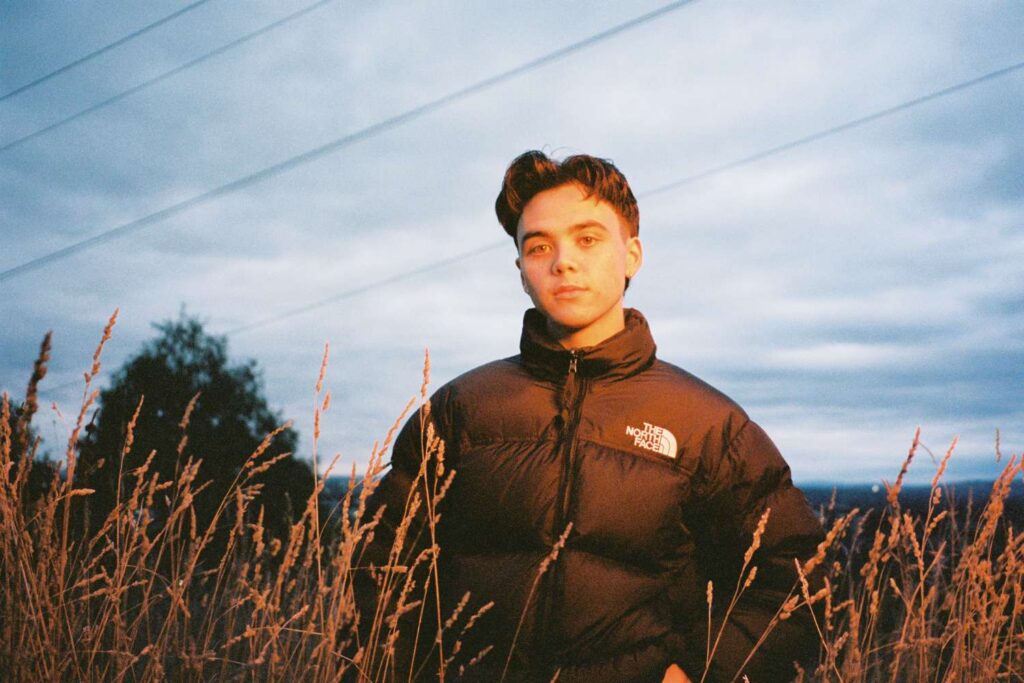While Swayze’s progressive lyricism and the gridlock grooves of his bandmates are a force to be reckoned with on stage, any fan of punk can tell you that capturing that energy on record is a different story altogether. It’s all too easy for a band’s spirit to shrink the minute they’re forced into an acoustically-treated studio and told to play to a click, and there’s more than a few examples where the end results have turned out disastrous.
Choosing the smart route when it came to their debut, A. Swayze & The Ghosts decided not to bend to expectations, bunkering down in Northcote’s St. Charles Studios with producer Dean Tuza (Stella Donnelly, These New South Whales) to churn out their record in a matter of days. Opting for a minimalist approach to the record’s production, Tuza simply set up, pressed record and sat back and A. Swayze & The Ghosts do their thing: suffice to say, the results speak for themselves.
In a time where live shows are practically outlawed, Paid Salvation does a pretty mean job of bringing the sensation of spilt lager, sweat and smoking areas back to the forefront of your conscience. It’s a blistering record that very nearly encapsulates the essence of the band’s live performances, built on a bedrock of cranked amps, pure creative chemistry and a hell of a lot of conviction.
To find out more about the making of Paid Salvation, we pit the band’s drummer Zac Blain in conversation against the record’s producer Dean Tuza to deliver an unparalleled insight into how he and the band managed to capture the magic of A. Swayze & The Ghosts on tape.
How did you come across A. Swayze & The Ghosts, and what were your initial thoughts on the band?
I first heard A Swayze through Chris Wright (management). He hit me up because he liked some of the records I had worked on previously for artists such as Leroy Francis and Mossy. I Googled the band and saw pictures of Andrew Swayze hanging from the rafters at some outdoor festival in Sydney. I switched on the demos I was sent and just thought “Shiiiit, we have to capture this energy!”
When working with an artist, what’s the goal YOU are trying to achieve in the pre-production time?
When working with a guitar band, I feel pre-production is some of the most important time in the whole process. I am simultaneously trying to figure out band dynamics, arrangements, tempos, key signatures. Pretty much anything that might bite us in the butt when in the studio.
During pre-production in Hobart, we explored a lot of ideas for the record. Do you remember any major points of reference when developing ideas for the songs?
In my head I’m always thinking about four part harmony and how to lead the ‘voice’ (or whatever instrument is front and centre). My goal for producing this entire record was to be as transparent as possible. I didn’t want the listeners to feel the band had a producer’s grubby hands all over it. It just had to feel natural and as if we were recording in their basement rehearsal room in Tasmania.
Were you already formulating an approach to the tracking/recording during this time? What influences those decisions?
Definitely thinking of ways to approach recording from the very first listen. Where is the energy in the track? Are we going to be able to track live? Is there sections where it’s slowing and speeding up?
With tempo I’m listening to both lyrical articulation and narrative. How does it feel coming out of the singer? Is he rushing words? Can we follow the story? And also the kick and snare rudiments. Rhythms too fast or too slow can change the whole genre.
Key signatures are a big deal in terms of giving the song somewhere to go. A lot of the times I try and transpose the song to a key where it is pushing the vocalist in the choruses. The more we can get the voice to break the better. Key signatures can be a little tricky to navigate with guitars in strange tuning because the chords are so open. Sometimes there are only certain spots they can be played well.
Were there any recording techniques that you always wanted to try or experiment with, and got an opportunity to on the session?
We had access to one of the most equipped private studios in the country. Just to narrow down our choices, all of the recording equipment was made in the ’70s. Vintage mics and outboard, lots of Neumanns and APIs and AWAs. I did put a vintage Neumann u47 less than a foot away from an Ampeg SVT Classic bass amp turned up to ten…
Has there ever been a time where you haven’t been satisfied with a finished product that you’ve been a part of?
Nah… They are all special in their own ways. You just have to let it go.
Do you have some key gear/signal paths that ALWAYS make it in a session?
For some reason the vintage Sony 37a always makes an appearance. We ended up using that on Andrew’s voice. The instant he sang into it he wanted to use it on the whole record. He stood about 60cm back from the mic and had his hands touching the roof whilst blasting out the songs. His tone is incredible.
Through our many conversations over the last two years, you’ve always been looking for new innovations to make your work more and more enjoyable. Has anything got you really excited at the moment?
During the Covid lockdown I have switched from ProTools to Cubase. I read a book by Seth Godin about ‘Sunk Costs’ and decided that even though I have been with ProTools for 18 years (since Digi 001) it doesn’t keep up with my workflow anymore. So I switched to Cubase Pro. I could write a book on what Cubase does that ProTools can’t! I couldn’t be happier with my decision.
Do you listen to music for pleasure?
YES! I listen to tunes everyday! It is the single biggest thing that a producer should do (In my opinion)…. I have a list a mile long with stuff to listen to. Whether it’s references for artists / artists recommendations or blog premieres. But I’m always flicking to YouTube and checking out tunes to give my ears a rest whilst working on tunes.
Paid Salvation, the debut album from A. Swayze & The Ghosts, is out now on Ivy League Records.
